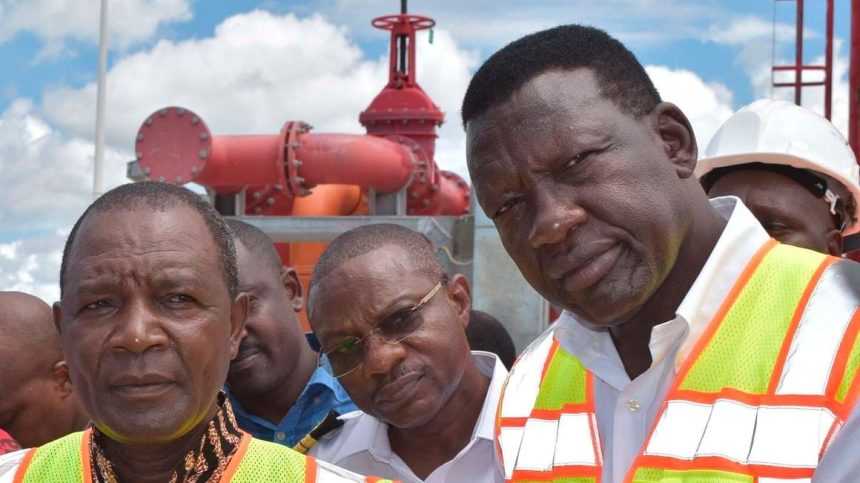Treasury Cabinet Secretary Prof Njuguna Ndung’u has defended the painful proposals in the Finance Bill 2023 to increase taxes on various sectors, including fuel and salary taxes, saying it is a projection of where the economy should be heading.
Prof Ndung’u said some of the proposals in the Bill are meant to align Kenya with other East African states, saying the country is paying low taxes in the region on a number of products.
Speaking at the Kenya Ports Authority (KPA) Kipevu Oil Terminal 2 while receiving two vessels; Mv Proteus Jessica and Mv Nan Ln Wan with petroleum products, the CS said some of the proposals will only be applicable if they are passed at the public participation stage.
“We are moving to the next stage of public participation where the proposals if passed, will become law. What we are saying is that the proposals on taxes are the way to go, but they are not cast in stone because they give direction on our future direction,” Prof Ndung’u said.
Among the issues raised by a number of stakeholders in the Bill is an increase in the tax on petroleum products from the current 8 percent to 16 percent from 1 July, if the proposal is passed.

Prof Ndung’u said the government-to-government programme to import petroleum products is one of the strategies the government is using to stabilise the dollar as it gives the government time to pay for the products in the future.
“Today we received the two ships with 100,000 million tonnes of diesel and petrol and the April consignment will be paid in September while today’s consignment will be paid in October. This will give us time before payment and reduce the demand for dollars at this time of blackbuck shortage,” said Prof Ndung’u.
On his part, CS Energy and Petroleum Davis Chirchir said the government was in the final stages of increasing the storage capacity of petroleum products in Mombasa and various towns to ensure a constant supply of such commodities to control prices.
“The Kenya Pipeline Corporation (KPC) has completed the takeover of the defunct state-owned Kenya Petroleum Refineries Limited (KPRL) which will help ensure that we reduce the cost of petroleum as we will have done away with the cost of demurrage,” Mr Chirchir said.
KPRL has 45 tanks with a total storage capacity of 484 million litres, of which 254 million litres are reserved for refined products and the remaining 233 million litres for crude oil.
Mr Chirchir said the government was also in the final stages of constructing a 30,000-tonne Liquefied Petroleum Gas (LPG) handling and storage facility.



